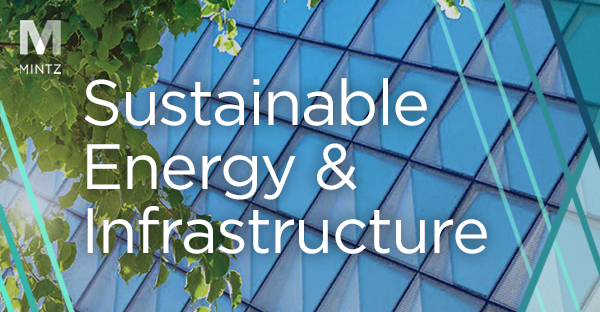Sustainable Energy & Infrastructure Litigation Updates — May 2025
Federal Regulation
On April 8, 2025, President Trump issued an executive order that sought to target actions undertaken by individual US states to combat climate change, for the stated purpose of ensuring “American energy dominance.” Specifically, the executive order took issue with the following actions, among others: (1) “State and local governments seek[ing] to regulate energy beyond their constitutional or statutory authorities”; (2) “States target[ing] or discriminat[ing] against out-of-State energy producers”; (3) “States subject[ing] energy producers to arbitrary or excessive fines through retroactive penalties”; (4) “Enacting[] burdensome and ideologically motivated ‘climate change’ or energy policies”; (5) “States…dictat[ing] national energy policy”; and (6) “Su[ing] energy companies for supposed ‘climate change’ harm under nuisance or other tort regimes that could result in crippling damages.” In other words, this executive order targeted the entire range of legal actions embraced by climate activists – ranging from collaborating with friendly state governments to enact regulations to strategic tort litigation – in an effort to have the federal government stymie such activities. However, it is not clear that the ultimate impact of this executive order will ultimately be meaningful. The executive branch does not possess the unilateral power to terminate civil lawsuits brought by private parties in the courts, nor can the federal government simply override state governments without clear and express authority to do so, as per the US Constitution. Nonetheless, while the practical impact may be negligible, this executive order sends a strong signal about the policy priorities of the second Trump administration.
There has also been a development with respect to the SEC climate disclosure regulation, which was promulgated by the Biden administration — and that the Trump administration SEC subsequently declared it would not defend in the courts. On April 24, 2025, in response to a request by the states that intervened in support of the rule, the Eighth Circuit ordered that the litigation over the validity of the SEC's climate disclosure rule be “held in abeyance.” In effect, this means that the judicial challenge to the SEC's climate disclosure rule will be stayed until the SEC informs the court about whether it “intends to review or reconsider the rules at issue in this case” – i.e., whether the SEC will engage in the lengthy administrative process necessary to revoke the climate disclosure rule promulgated by the Biden administration's SEC. Significantly, the Eighth Circuit has effectively announced that it will not permit the Trump administration's SEC to let the climate disclosure rule die quietly in the dark – as the court proclaimed, “if the [SEC] has determined to take no action [i.e., not engage in the administrative process of review], then the [SEC] should address whether the [SEC] will adhere to the rules if the petitions for review are denied” – in other words, if the courts uphold the climate disclosure rule, then the SEC must state whether it will enforce the climate disclosure rule or not. And “if not” then the SEC must explain “why the [SEC] will not review or reconsider the rules at this time” – i.e., why it has chosen to not engage with the administrative process. The Court is effectively signaling that it would not regard favorably any decision by the SEC to simply not enforce the climate disclosure rule should the courts ultimately uphold its validity.


